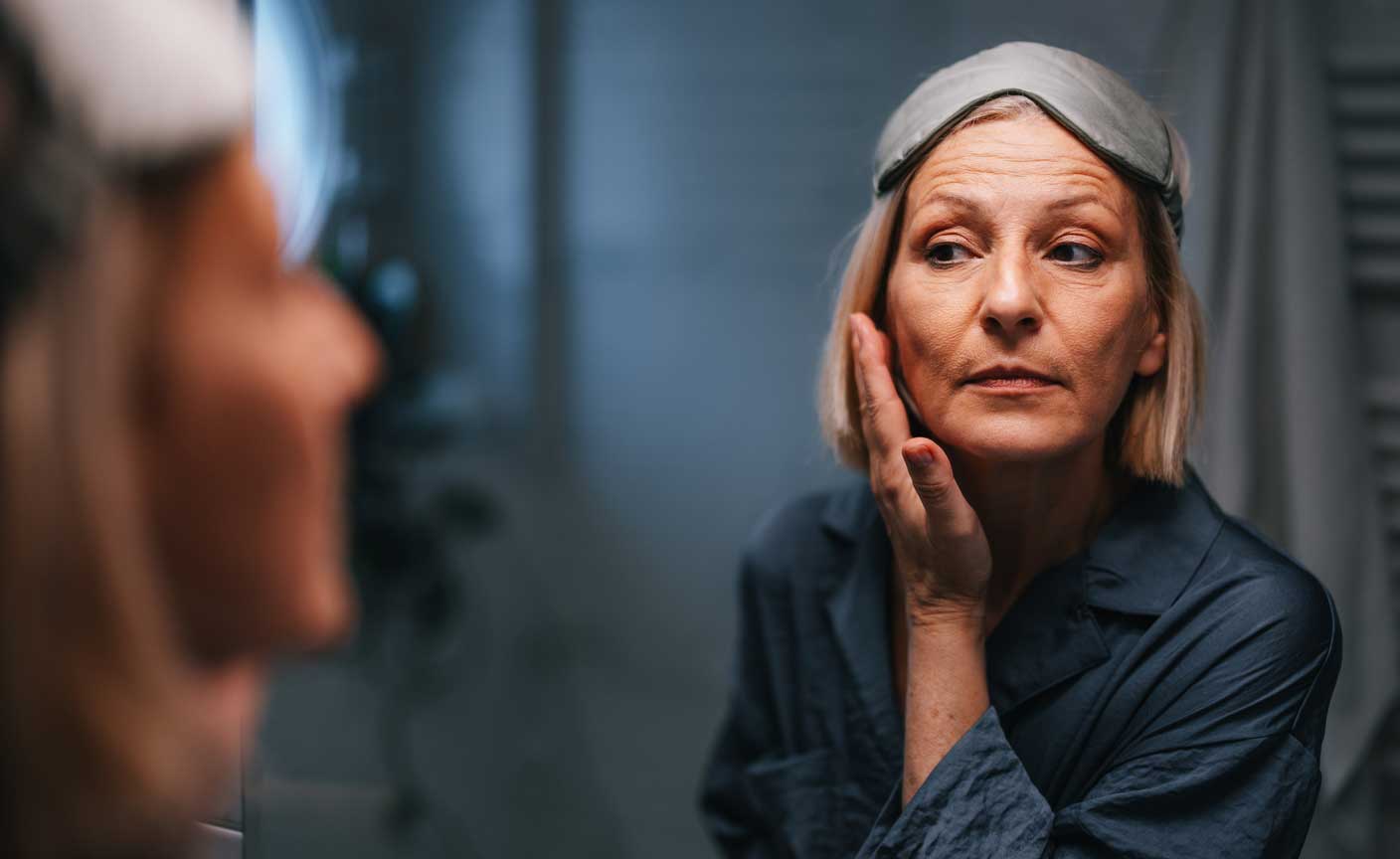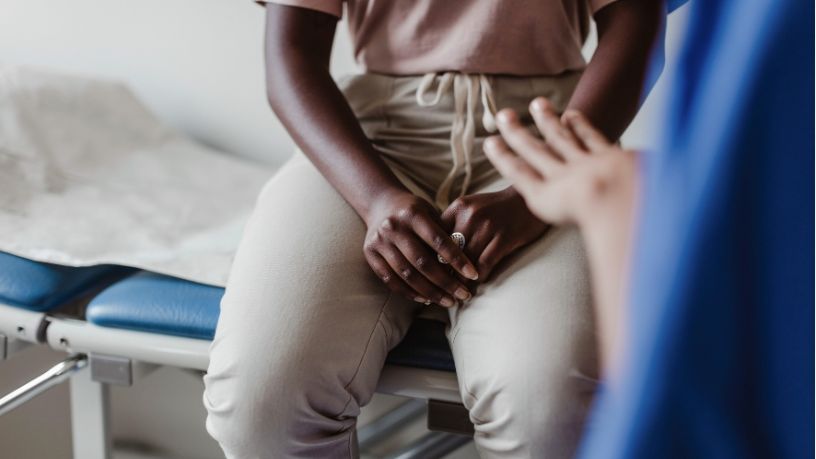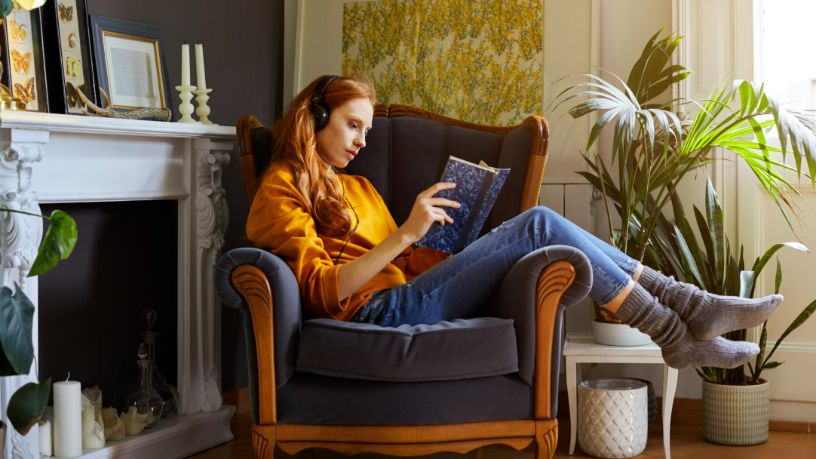Dementia and heart disease are the leading cause of death for Australian women.
Key takeaways
Most of us are not eating a balanced diet or getting enough exercise to support our health.
Small changes, such as getting enough sleep and staying active every day, can be extremely effective in supporting healthy outcomes as we age.
When you read the words ‘women’s health’, what are the main issues that immediately spring to mind?
Chances are it’s conditions such as breast or cervical cancer, or what Professor Cassandra Szoeke calls “bikini health”.
“When it comes to thinking about ‘women’s health’, we're still seen in our bikinis,” says Professor Szoeke. “But when you look at the areas where women have poor health it’s predominantly things like depression, dementia, diabetes, heart disease, back pain and osteoporosis.”
Women's health in Australia
Did you know that dementia is the leading cause of death for Australian women, closely followed by heart disease?1
The reality is that many of us are in the dark about what’s really impacting our health and wellbeing, and most of us aren’t getting our most basic needs met.
A study of over 20,000 Australian women over 18 years old found:
- 80% are not eating enough fruit and vegetables
- 70% are not exercising enough
- 54% are overweight or obese.2
While breast checks and cervical screening tests are essential, Professor Szoeke says women and people who are transgender and gender diverse also need to think about their heart health, what they’re eating, how active they are and how they’re feeling in general.
The good news is, there are some simple ways you can support and promote your own health, wellbeing and happiness every day.
Move more
Three decades of research by the Women's Healthy Ageing Project found moving for an hour a day is one of the best things you can do for your health.3
“Movement helps the brain and the heart, it can help prevent strokes, it even helps osteoarthritis,” says Professor Szoeke.
“Movement can give people better quality of life and function, even if you have problems with mobility.”
And it doesn’t have to be rigorous exercise. Walking, gardening, swimming, vacuuming or a mixture of activities all count towards your hour a day.
Eat fresh
You need to eat plenty of fresh fruit, vegetables, leafy greens, fish, and some nuts.
“Choose the healthy oils, avoid processed foods and sugars, and eat stuff that came off the farm,” says Szoeke.
Eating a well-balanced diet that’s low in salt and saturated fats can help reduce your risk of heart disease, stroke and type 2 diabetes.4 Avoiding smoking, drugs and alcohol also helps to lower these risks.
Daily sunshine
While always remembering to prioritise sun safety, a daily dose of vitamin D is important to help your body absorb calcium and plays an important role in bone and brain health.5
While you can take a vitamin D supplement, the best source is direct exposure from the sun. But that doesn’t mean ditching the sunscreen.
Stay out of the sun during high UV hours and always wear sunscreen even when getting your daily vitamin D hit.
Stay connected
Socialising is a vital part of ageing happily as research shows that people who are lonely have a higher rate of death and poorer physical and mental health.6
Staying connected doesn’t have to mean having dozens of friends or being a social butterfly. Finding the people in your life who bring you joy and comfort is what’s most important.
“We’re a very social species and it's a strength to be connected and maintain those connections,” says Professor Szoeke.
Prioritise sleep
We all know how good it feels to get a good night’s sleep, which is around 7 to 9 hours for most adults.7 But Professor Szoeke says, from a medical perspective, sleep is an essential part of ageing well.
“We know if people are sleep deprived their cognition and mood is not as good and they have less capacity to fight infection.”
“We also know the body doesn't like inflammation, and inflammatory markers go up if you’re sleep deprived.”
Develop good sleep hygiene by going to bed and waking at around the same time each day, avoiding alcohol and devices that emit blue light (such as smartphones) at least 2 hours before bed and ensuring you have a cool, comfortable, quiet place to sleep.
It’s never too late to make positive changes. According to Professor Szoeke, what you do in your middle age can be transformative.
“The thing about ageing is that it takes decades for chronic diseases to develop,” she says. “So, the ages between 45 and 60 years are a really important time as you can change your entire trajectory.”
Speak to your GP about how you can support your health today.
Professor Szoeke is the Director of the Healthy Ageing Program at The University of Melbourne and is the principal investigator of the Women’s Healthy Ageing Project. She has utilised the project's data to date to write 'Secrets of Women's Healthy Ageing'; a practical guide for women who want to maximise their health and wellbeing into their later years.

Self-care starts with a checkup

At Bupa, trust is everything
Our health and wellbeing information is regularly reviewed and maintained by a team of healthcare experts, to ensure its relevancy and accuracy. Everyone's health journey is unique and health outcomes vary from person to person.
This content is not a replacement for personalised and specific medical, healthcare, or other professional advice. If you have concerns about your health, see your doctor or other health professional.
1Australian Government, Australian Institute of Health and Welfare. (2023). Deaths in Australia. Australian Government, Australian Institute of Health and Welfare.
2Szoeke, C., Dang, C., Lehert, P., Hickey, M., Morris, M. E., Dennerstein, L., & Campbell, S. (2017). Unhealthy habits persist: The ongoing presence of modifiable risk factors for disease in women. PLOS One, 12(4), e0173603.
3Szoeke, C. (2023). Uncovering the secrets to ageing well for women. Victoria State Government, Seniors Online Victoria.
4Eat for Health. (2024). Fat, salt, sugars and alcohol. Australian Government.
5Cancer Council. (2024). Vitamin D. Cancer Council.
6Australian Government, Australian Institute of Health and Welfare. (2024). Mental health. Australian Government, Australian Institute of Health and Welfare.
7Australian Government, Australian Institute of Health and Welfare. (2021). Sleep problems as a risk factor for chronic conditions. Australian Government.
You might also like...
How to check for breast cancer
The better you know your breasts, the more likely you’ll be to notice any changes. Learn how to check for the signs of breast cancer at home.
Cervical screening tests: Everything you need to know
From what happens on the day to what different results might mean, learn more about what a cervical screening test is.
A guide to endometriosis
Endometriosis is a long-term, progressive condition that affects around one in 9 Australian women. Learn more about the symptoms, diagnosis and treatments.
How to know when you're ovulating
If you’re trying to conceive, you may want to know when you’re ovulating each month. We look at the signs of ovulation and some ways to track your cycle.





